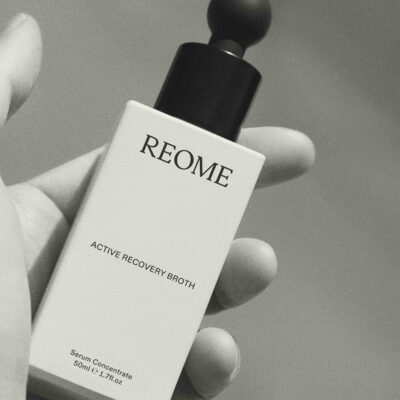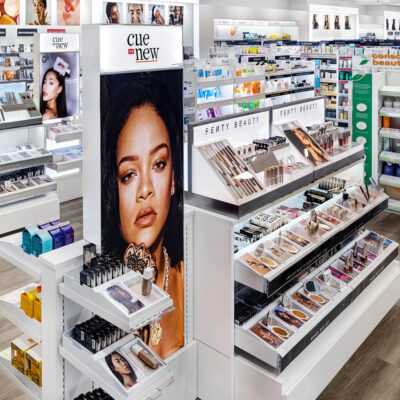
What Indie Beauty Brand Founders Make Of Cancel Culture
In this edition of Beauty Independent’s ongoing series posing questions to beauty entrepreneurs, we ask 21 founders and executives: What are your thoughts on today’s cancel and call-out culture, and is it something you think about when presenting your brand online?
- Jessika Carter-Ross Owner and Founder, Madam J Beauty
I'm honestly bothered by the cancel and call-out culture today. Social media allows news, whether true or not, to spread very quickly. You could wake up one day and hear things about you that were misinterpreted and, now, you have customers fleeing. As an indie brand, it's extremely important that I protect my brand and my reputation at all costs.
One thing about me is I've always been true to myself, and I don't hold back. I'm sure that's what keeps my customers coming back. I like to be vocal and hear from my customers. Everybody has their own way of handling situations and, sometimes, a little reassurance will go a long way. I personally know how much time it takes to build a brand. I would be devastated if one day my brand was canceled for something that was misinterpreted. As a whole, I also think humanity needs to learn more grace and forgiveness.
- Nichole Wright Founder and CEO, Satrell Beauty
I don’t have an issue with the cancel and call-out culture as long as there’s a legitimate reason for going this route. Canceling or calling out someone or a business just for spite is ridiculous because it doesn’t serve a purpose. I would prefer to speak or email about an issue in private before considering that option.
If no resolution comes from a private conversation, then I’ll think about my next steps on how to handle my issue in the manner that best suits my needs. If it means blasting someone on a media outlet, so be it. In this day and age, everything is public knowledge, so it’s not very easy to keep things on the low. It’s sad that the only way to get most individuals or a business to execute an issue now versus later is to expose them publicly.
- Jasmine Lewis Founder and CEO, Vie Beauty
The cancel and call-out culture is a complicated form of accountability. I have seen it be effective for brands that have displayed abusive or inappropriate behavior to consumers, employees and peers. Boycotting a brand can create change, but some of the larger brands have a more fluid budget to bounce back and regain their audience over a smaller indie brand.
I can’t lie and say it’s not anything I don’t take into account when we are on our social media platforms, because it is. You can post a phrase or content that one person doesn’t have the same views on or disagrees with and, at the click of a post and a few shares, you are cancelled. Most indie brands have a harder time recovering from something like this.
We can’t just buy our audience back—a tactic I have seen used as a distraction from the matter at hand—or wave a new shiny product to divert the attention after we have lost everything we worked for in the click of a button. I am mindful and, as a minority brand, I believe slightly more aware in terms of some things.
- Eonica Smith Owner and CEO, Onie Organics
Sometimes, I believe it’s necessary. However, I believe people make mistakes. In moments like this, I believe it’s best to educate and use that very moment as a teachable one. As a business owner who primarily operates online, I believe it is my responsibility to always be professional. I should never operate in a manner where someone questions my professionalism, ethics or morals. I think that we are so quick to cancel someone, but we also have to figure out ways to educate and inform. It definitely makes me operate my business differently.
- Mona Lisa Crossway CEO and Founder, VanityTools
I definitely consider this when executing marketing strategies because I never want to offend anyone, especially a potential customer. At the same time, I have to stay true to my values and what I believe in. For instance, if I post “Black Lives Matter,” and it somehow offends someone, then so be it because that’s something that I truly believe and stand for. I also do my best to fact-check anything I see posted in the media because, when it comes to canceling someone or a company, it's important to understand both sides of the issue.
- Dillon Peña Creator, Leland Francis
Call-out or cancel culture is difficult. Oftentimes, we only see one side. I’m not making excuses for these folks, but we must not fail to look inward and see how we have grown on issues. I do consider call-out culture as a small indie brand. I’m gay and Latin, and grew up in Oklahoma. I see a lot of things from different points of views on my personal Facebook page. Oftentimes, it is appalling. Lauren Napier of Lauren Napier Beauty is a great friend and sounding board. I often run things by her to make sure that what I am posting isn’t offensive to others, so I don’t get canceled.
- Kim Wileman CEO, as|if by Nassif and Cobuna Brands
In terms of canceling or calling out, it depends on the situation. If a product or brand is marketed in a way that is untruthful, then customers have the right to disclose their opinion. If a founder publicly says or does something provocative or controversial, then they must be aware that they run the risk of being called out. Executives have a personal responsibility to represent brands ethically.
Call-out culture is dangerous. Without social proof, it’s hard to distinguish personal actions, especially if you aren’t directly involved. Lying, racism, sexism, homophobia, lack of integrity, etc., are all characteristics that are unacceptable and have no place in beauty. But calling out someone or canceling them by name without the receipts lacks merit and integrity.
It’s important to remember that each of us have dualities to our personality. We are human, and we all make mistakes. Sometimes, when people are mean spirited or rude, they are often dealing with something that is totally unrelated to us personally. I try to remember that in my professional life so I can be compassionate, listen and be available. It is entirely natural for people to have differences. If we are to be inclusive, we must be respectful of these differences. How boring the beauty industry would be if we were all the same!
- Adodo Robinson Founder, Delali Robinson Cosmetics
I am not a fan of the cancel culture, but I do agree with the call-out culture in hopes that this will force companies to be more careful in regards to the products and information they put out. Everyone should have the opportunity to correct their mistakes.
- Sara Kyurkchieva Founder, Orpheus Skin
Cancel and call-out culture is getting more frightening and dangerous, and it often leads to conflicts rather than eye-opening, constructive debates. In many cases, the accused are not able to defend themselves from critics that are quickly fortified as accusations are piling on. We believe there’s a better way to express our disagreement, doing it respectfully and being constructive about it.
We believe unethical, racist behavior should be called out, but we also believe we should be mindful of the thin line between that behavior actually existing and trying to search for behavior that’s simply not there. People should be mindful when they are being critics and ask themselves: What is the root of that criticism? We believe that mindfulness is what will truly drive positive change.
I stand behind the notion that people should be held accountable for the harmful, hurtful things they say and do, and applaud those willing to speak up when these instances occur, but I find it harder to applaud when these call-outs come from a place of anger and frustration.
As a newly launched startup indie brand, we pay close attention to our voice in media and the way we present ourselves. In today’s world, consumers are actively engaging with brands and have an incredible power over their reputation, holding them accountable for everything they say or don’t say.
Sometimes, a single word can turn out wrong and backfire almost instantly in social media, having a tremendous impact on a brand's credibility and trust. Clearly, more needs to be done, but not by creating hostile conversation and an environment that further increases stress and negativity and, in the end, is not solving any issues at all.
- Aleena Khan Co-Founder, CTZN Cosmetics
Cancel and call-out culture is 100% always on the forefront of our mind as an indie brand when making decisions, whether it is related to content or product development. Our approach to prevent any call-out is having a diverse team of advisors and consultants that we discuss our work with before publishing anything. This is to ensure nothing is misconstrued or unintentionally offensive.
We urge brands to make the effort to diversify their teams as well because we will not catch all potential offenses if we only see things from our own lens or perspective. That is why it is of paramount importance to consult individuals from completely different backgrounds to keep you in check!
We also acknowledge that we have an even bigger responsibility to constantly triple-check our work before going live with a concept because we call ourselves an inclusive brand. We do not take that word lightly, neither do we shy away from it. It keeps our standards high in approaching everything with mindfulness and sensitivity.
I think calling out is very productive and, at times, very necessary. However, I personally do not support cancel culture. You are essentially canceling a human, and you are normalizing bullying, which has detrimental effects to someone’s mental health, often beyond what we even realize. Continue to correct brands and individuals with the intention of guiding them and informing them to do better.
If a brand or individual authentically conveys that they are wanting to improve after being called out, and they are genuinely apologetic and see that their past actions were wrong, then do not support canceling their career. That kind of hate and aggression will push them further away from bettering themselves and would then be counter-productive to the root intention of call-out culture, which is for us all to do better.
- DANIELLE GRONICH Co-Founder, CLEARstem Skincare
I think negativity should be avoided online. You don't need negativity when you have education. If a brand is doing something shady like their marketing and branding appears overly natural, but they are using parabens, I will educate people on the importance of checking ingredient labels for themselves. Empowering people feels so much better than spreading angst.
The same process of education applies for larger topics, too, like BLM and discrimination. More negativity is not the answer, education and empathy are. People are all products of their environments, so using a platform like Instagram to randomly call out someone who you don't know is unproductive and leaves a lot open to misinterpretation.
Psychology tells us that we are very poor judges of other peoples' motives. A perceived motive is usually our own projection. So, if you have to assume, assume the best. If someone really offends you, unfollow them. The best revenge is no revenge. When you wrestle with pigs, you both get dirty, but the pig likes it. Spend that energy better, by educating and spreading awareness.
- JAMIKA MARTIN Founder, Rosen Skincare
For me, it's a positive and a negative. I think there are amazing benefits to holding brands accountable and voting with your dollar, which I feel wrongly gets grouped into this toxic idea of cancel culture, when in reality people just want to support brands they align with. Where I feel it gets dangerous is not allowing any room for growth, whether it be on the brand side or on the founder side.
I definitely consider how I speak or what I speak on when presenting myself online, but that's something I aimed to do before cancel culture came to be. I'm open to learning, admitting when I'm wrong, and listening to folks I may offend or not take into consideration, and I really think that's the main thing everyone is trying to work toward.
- Jennifer Edwards Creator and Chemist, Refinne
We are clear on our brand priorities. We choose not to defame any individual because that’s not on brand for us as women who are empowering other women. We speak out in the name of social justice and have made clear statements and support anti-racism. We support advocacy for important issues. We don’t jump on the call-out and cancel culture bandwagon of attacking or baiting people. It’s not necessary. If you have that much energy to tear someone else down, you need to get a hobby.
- Paayal Mahajan Founder, Essential Body Couture Skincare
I speak my truth on social media and on every platform. I stepped into the beauty business because I was tired of the fluff, tall promises, false claims and unrealistic standards being peddled to me as a consumer. I wanted to create something that was authentic, real, gave real results and, yes, at the same time, was luxurious. I take time to connect to my audience with authenticity, compassion and grace. I do not view myself as a celebrity. I keep myself grounded, humble and try to bring real value to the people who choose to follow me or buy my products. I tell it like it is.
For generations, the beauty industry—magazines, brands, retailers, product makers, advertisers—has stood up on the backs of people by making them feel inadequate and holding up unrealistic, mostly Eurocentric standards of acceptability and beauty. In the wake of George Floyd’s murder, I have also witnessed so much posturing. You cannot dial in diversity and inclusion. Your consumers will feel it. Your values are woven into your brand’s DNA, and they show up clear as day. They show up whether you’re an influencer, a celebrity or anyone using social media.
The beauty and wellness industries are guilty of some of the most egregious cultural appropriation out there, from Ayurveda to Shamanism. And, sadly, in places like the U.S., the exotic sells. Take a Sanskrit word, add the words “ancient tradition” and, boom, you have a bestseller without relevance, context or any level of cultural sensitivity or respect. White people do this more than anyone else, and retailers love it!
The same is true of appropriating native cultures. Suddenly, palo santo is trendy and showing up everywhere without respect or regard to its uses, its heritage, its sacred meaning for the cultures who use it or even thought to its over-farming. The same is true of crystals and their mining. The list is long and it runs deep because the beauty and wellness industries are just that guilty, and that includes medical practitioners who perpetuate these stereotypes. Voices must not only be heard, conscientious action must follow.
- Michael Canepa Co-Founder, Kidskin
We’ve noticed a lot of brands being canceled lately, especially on TikTok. We don’t really worry about that. As long as we are honest to our customers and true to the brand and what we stand for, we should be OK.
- Janna Ronert Co-Founder, Hush & Hush
I think it’s important for our brands to be aware of what is going on in the world. As a small brand, we take every aspect of current events into play and discuss these topics as a team. Online, we are mindful of what we say, who we work with and what we stand for.
- Khadidja Toure Founder and CEO, Kubra Kay Skincare
I like that the cancel and call-out culture is bringing awareness to a prominent issue that is rarely addressed. As a Black-owned beauty brand, it is important to represent that in its entirety, which means that we have to discuss and address topics that are often difficult and uncomfortable to talk about. Kubra Kay is a brand that is for everyone, and that means we have to speak on and provide awareness to issues that disproportionately affect some people.
- MELINDA HERRON Founder, 103 Collection
Canceling or calling-out culture has been a catalyst for highlighting social injustice, racism, bigotry and sexual harassment, but also served as a sounding board for very hateful racist rhetoric. We are extremely careful about what we share online, but will always share our opinion on matters that are near and dear to our hearts.
- YOKI KIVA HANLEY Owner and President, Itiba Beauty
First, I am a Black, Caribbean woman. So, everything I look at is through those lenses. I feel the injustices of what is happening to my Black sisters and brothers and, of course, I want to react. However, cancel and call-out culture can be something of a double-edged sword. Yes, we need to hold people accountable for their actions 100%, especially those who outright show and endorse hateful and hate-filled language and rhetoric. And some of them rightly deserve to be canceled or called out, especially if their behavior has not changed and has only become more toxic.
Everyone, especially Black people and those who have been marginalized, deserve the right to live a happy, fruitful, peaceful life. But how do we allow for true contrition on the part of the offender? Are they apologizing or jumping on the bandwagon because they are afraid of what it will do to their bottom line? Or are they truly remorseful and learned from their mistakes?
Am I careful about what I say online? Yes, I think about how what I say or react to something can be taken incorrectly due to cultural differences and other nuances, and how that can translate into future dollars or even possible alienation of my customers. I do not ever want my words to be misunderstood.
But, at the same time, if it is something that I am passionate about, then I feel it is my duty to speak up about it. And I would hope that, if something I said or did was taken as an offense to someone, that they would take the time to have a dialogue with me and show me how my words or actions hurt. We can only learn and grow if we are given constructive criticism and room to grow.
- Catharine Dockery Founder, Vice Ventures
It's obviously important to be mindful of the social context you're operating in. This is the first time in history where a large portion of human life is constantly being recorded. As a society, I hope we can emphasize forgiveness while still focusing on bringing positive social change and fixing the problems of the past.
- Rochonne Sanchez Co-Founder, Eossi Beauty
We do believe there are scenarios when a brand or individual needs to be called out for their behavior, and we’ve seen many instances recently where the communication has been completely tone deaf. However, we believe in redemption and one’s ability to learn from their mistakes. So when we see a brand or individual genuinely trying to learn from their missteps by educating themselves through resources provided by the community, admitting to their lack of knowledge, and working to make amends, then we are willing to grant them a second chance.
As a brand we believe in representing all humans and working to better understand the human condition. As two cisgender white women, we understand there are certain aspects of life that others will experience that we can’t personally relate to. But we can learn, add our voices to the fight, use our platform to support and uplift others, and listen when we receive feedback telling us that we can be better. We genuinely believe we’re all in this life together and we owe it to one another to always work towards being better.
If you have a question you’d like Beauty Independent to ask beauty entrepreneurs, please send it to editor@beautyindependent.com.






Leave a Reply
You must be logged in to post a comment.